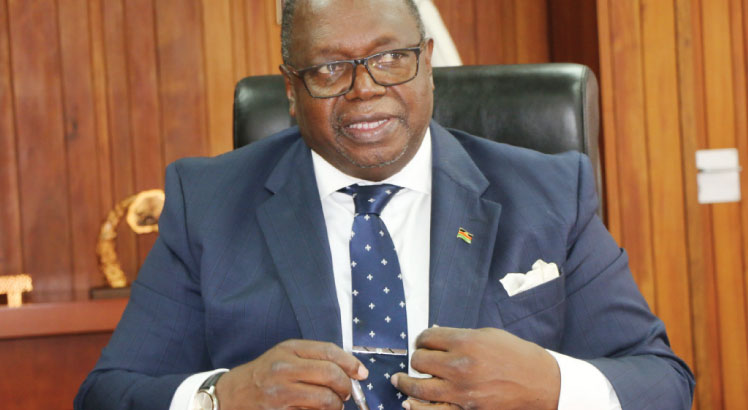Cost of borrowing goes up
Businesses and individuals should brace for more hard times as the Reserve Bank of Malawi (RBM) has increased the benchmark policy rate by 200 basis points to 26 percent, effectively raising the cost of borrowing.
The hike in the policy rate, the key driver of interest rates on loans, will in turn compel commercial banks to raise their interest rates from the prevailing 23.6 percent.

In a statement of the Second Monetary Policy Committee (MPC) of 2023, RBM Governor Wilson Banda said based on the assessment of the macroeconomic situation and outlook, the MPC resolved to increase the policy rate by 200 basis points.
However, the committee resolved to maintain the Lombard rate at 20 basis points above the policy rate and the Liquidity Reserve Requirement ratio at 7.75 percent for domestic currency deposits and 3.75 percent for foreign currency deposits.
Banda said the MPC arrived at the decision after observing that inflationary pressure has intensified such that inflation is projected to persist before it starts to decline.
He said: “The MPC noted that inflation pressures have intensified and the inflation path is set to remain elevated above the five percent medium-term target. The outturn reflects the materialisation of most risks identified during the October 2023 MPC meeting.
“The committee observed that the high inflation environment is not conducive for growth and therefore resolved that a monetary policy response is required to contain inflationary pressures and restore price stability.”
Further, the MPC noted that domestic economic growth is projected to pick up to 3.2 percent in 2024, from 1.5 percent in 2023, supported by an increase in public investment and recovery in mining and quarrying, manufacturing, information and communication, financial and insurance activities and education sectors.
However, the positive outlook is clouded by El Niño-induced weather conditions and a highly uncertain global economic and geopolitical environment.
In an interview last evening, Consumers Association of Malawi executive director John Kapito said the policy date hike will put a heavy toll on borrowers and consumers who are still reeling from the negative impact of the 44 percent kwacha exchange rate re-alignment last November.
He said: “It will be a big challenge now because most of our traders borrow money from the banks to buy goods.
“There will be trouble on the market. Money will be very tight.”
According to economist Bond Mtembezeka, the policy rate hike was rather unexpected saying: “I thought they would maintain it for now. It means the cost of borrowing just got higher and that has a pass through effect to the prices of goods and services as producers who borrow to produce will pass that cost on to the consumer.”
Scotland-based Malawian economist Velli Nyirongo said while the move is justified, it is crucial to acknowledge that the decision to raise interest rates carries inherent risks, particularly in terms of its potential impact on economic growth.
He said: “In light of the persistently high inflation rates, adopting a tighter monetary policy is deemed necessary to anchor inflation expectations and avert the potential emergence of a wage-price spiral.
“However, sectors sensitive to interest rates, such as investments and borrowing-dependent industries, may experience a dampening effect. Striking a delicate balance between fulfilling the central bank’s mandate of inflation control and fostering economic growth becomes paramount for the RBM.”
Nyirongo said as the economic landscape evolves, close monitoring of key economic indicators becomes imperative.
Malawi’s year-on-year headline inflation rate for 11 months to November 2023 averaged 28.2 percent, according to The Nation calculations based on National Statistical Office data.





